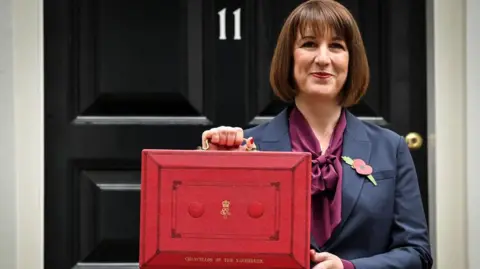October 15, 2025
UK Finance Minister Rachel Reeves is reportedly preparing to raise taxes and cut spending in the the upcoming November budget to address rising borrowing costs and shrink the fiscal deficit.

LONDON — British Finance Minister Rachel Reeves is openly exploring a mix of tax increases and spending cuts in her forthcoming budget set for November 26, aiming to close a growing fiscal gap and safeguard the nation’s financial footing. Reuters
Reeves told Sky News she is “looking at tax and spending as well,” signaling a shift toward more aggressive fiscal measures in response to mounting pressure from higher borrowing costs, subdued growth forecasts, and the scrapping of earlier welfare savings plans. Reuters+1
Economic analysts estimate that Reeves may need to generate around £30 billion via new revenue measures to meet her fiscal targets and maintain market confidence. Reuters+1
Since her first budget, Reeves has sought to maintain a narrow “fiscal margin” between government revenues and spending. But rising interest rates and increased public borrowing have narrowed that margin significantly. Reuters+1
The Office for Budget Responsibility (OBR) has revised down growth expectations, compounding the challenge of balancing public finances. Reuters+1
Reeves is also seeking to build a stronger “buffer” (or headroom) to insulate against future market volatility and bond yield pressures. Reuters+1
Reeves has previously pledged not to raise core taxes—such as VAT, personal income tax, and national insurance—but with constraints tightening, she may shift toward less politically sensitive adjustments:
Reforming wealth, property, or capital gains taxes
Changing taxation on landlords’ rental income
Tightening tax reliefs on savings, pensions, or capital gains
Adjusting gambling and luxury taxes
Reassessing public expenditure, including departmental budgets, welfare programs, or government transfers
Analysts caution that any major tax rise must be carefully designed to avoid damaging growth or investor confidence. The Institute for Fiscal Studies (IFS) has already urged Reeves to focus on structural reforms rather than blunt revenue grabs. Reuters+2The Guardian+2
Some think tanks argue Reeves may need to break her pre-election promises about not raising certain taxes, citing the scale of the fiscal shortfall. wtvbam.com+2Reuters+2
The IMF, present at parallel global meetings, has remained largely supportive of a responsible approach, as the UK seeks to brand itself as a "safe bet" for global capital. Reuters
However, critics warn that poorly calibrated tax or spending cuts could suppress growth, exacerbate inequality, or provoke political backlash—especially given that Labour’s manifesto contained strong pledges against raising certain taxes. The Guardian+1
Reeves’s November budget is shaping up to be a make-or-break moment for her government’s economic credibility. The choices she makes could define not just the next fiscal year but the UK’s longer-term trajectory amid global economic headwinds.
If she opts for a combination of modest tax adjustments, targeted reforms, and select spending control, it may strike a balance between fiscal stability and political feasibility. But the scale of pressure suggests that bold measures may be unavoidable.
Markets, investors, and households will watch closely to see whether Reeves can deliver a credible, growth-friendly plan—or whether the UK enters a new cycle of austerity tensions.